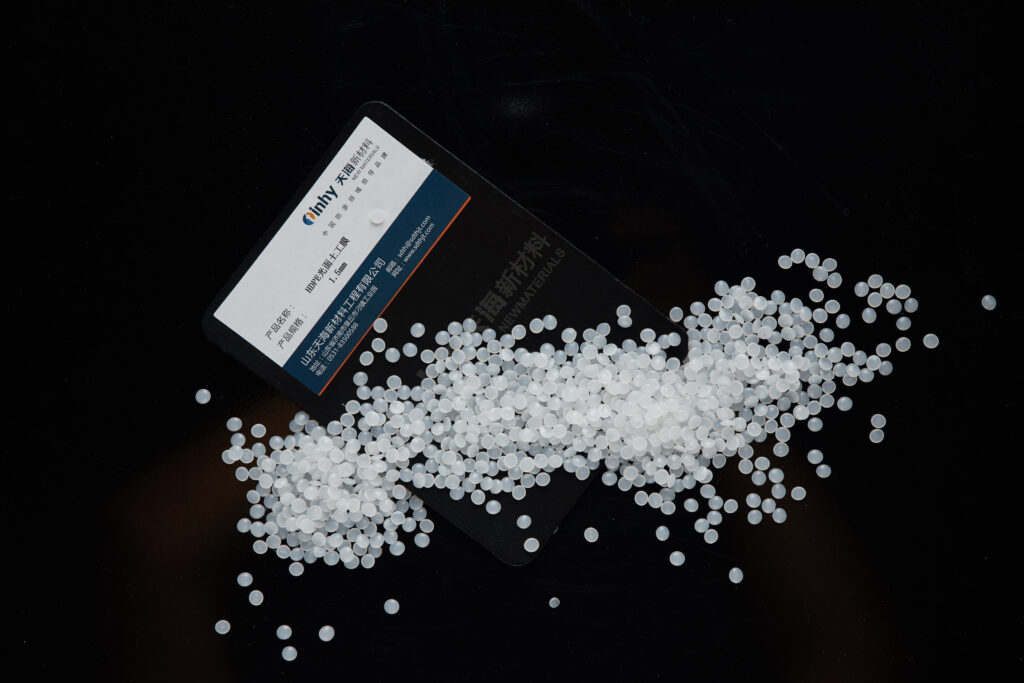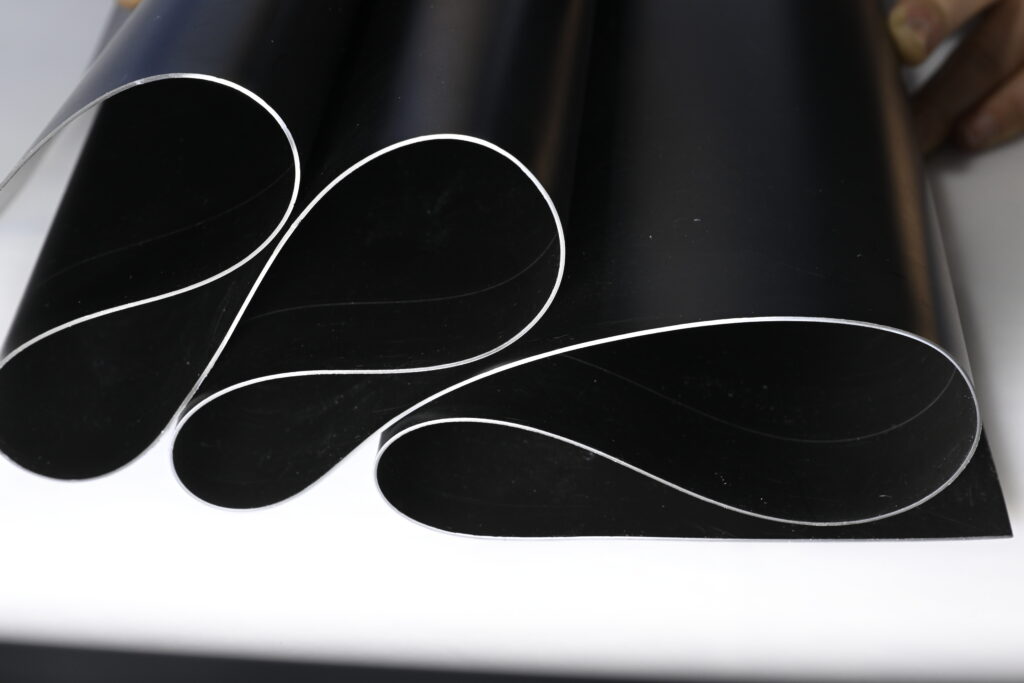How much anti-seepage property does the geomembrane need to meet during road construction?
In road construction, the anti-seepage requirements of geomembranes are usually determined based on specific projects and standards. The anti-seepage requirements of different road projects may vary, depending on the geological conditions, rainfall, groundwater levels and other factors in the area.
Generally speaking, the anti-seepage performance requirements of geomembranes in road construction are relatively high, and they usually need to have the following characteristics:
High waterproof performance: The geomembrane should effectively prevent moisture from penetrating beneath the road structure layer. It should have excellent anti-seepage capabilities and be able to withstand seepage pressure from rainfall, groundwater or other liquids.
Excellent sealing performance: The geomembrane should have good sealing performance to ensure that there is no leakage at joints and near fixed points. High-quality connection and fixation techniques are critical to ensuring the anti-seepage performance of geomembranes.
Durability and stability: The geomembrane should be durable enough to withstand road traffic loads, climate changes and the effects of solar ultraviolet rays for a long period of time without losing its anti-seepage properties.
Chemical resistance: The geomembrane should have certain chemical resistance and be able to resist corrosion and damage caused by chemicals in the road structure and soil.
Specific requirements can be determined based on relevant engineering design specifications, local standards or suggestions from consulting engineers. At the same time, other factors will also be considered in road projects, such as drainage requirements, soil erosion prevention, etc., to ensure that the anti-seepage performance of the geomembrane can meet specific engineering needs and environmental conditions.

What are the sealing requirements for geomembranes in road construction?
In road construction, the sealing requirements of geomembranes are very important to ensure effective anti-seepage effect. The following are some common geomembrane sealing requirements:
Seam sealing: Geomembranes often require seam treatment during road construction to ensure a continuous impermeable layer. The sealing of joints should have the following characteristics:
Completely Sealed: The seams should be completely sealed without any leakage. Seam processing is usually done using methods such as hot melt welding, chemical welding or mechanical fixing.
Durability: Seam seals should be durable enough to withstand the effects of traffic loads, vibrations and weathering without causing cracking or loosening.
Flexible adaptability: The sealing material at the joint should have a certain degree of flexibility and be able to adapt to the expansion, contraction and deformation of the geomembrane to ensure that the sealing performance is not affected.
Edge fixation: The edges of the geomembrane should be fixed to ensure sealing performance. Edge fixation can be done by burying soil, weighting objects or other forms of fixation to prevent the edge of the geomembrane from loosening, rolling or sliding.
Treatment of crossing objects: The geomembrane may need to pass through objects (such as pipes, bridge columns, etc.) during road construction, and the geomembrane around the crossing objects should be sealed. Reinforcement materials, sealants or special interface treatments are usually used to ensure sealing around the penetration.
Overall continuity: Geomembranes used in road construction should have overall continuity and no breaks, cracks or other damage. Any broken or damaged parts should be repaired or replaced promptly to ensure overall sealing performance.
It is worth noting that the specific requirements for geomembrane sealing can be determined based on relevant engineering design specifications, local standards and the advice of consulting engineers. During the construction process, sealing should be carried out in strict accordance with the specification requirements, and sufficient quality inspection and monitoring should be carried out to ensure that the sealing performance of the geomembrane can meet specific engineering needs and environmental conditions.

What are the durability requirements for geomembranes in road construction?
In road construction, the durability of geomembranes is an important consideration. Due to factors such as the environmental conditions in which road structures are exposed and the traffic loads they bear, geomembranes need to have sufficient durability to maintain their anti-seepage properties and structural integrity. The following are some common geomembrane durability requirements:
Mechanical resistance: The geomembrane should have sufficient mechanical strength and toughness to resist the forces from road traffic loads and construction operations. It should be able to withstand dynamic loads, vehicle tire driving pressures and large deformations without causing breakage or breakage.
UV and climate change resistance: Geomembranes are often exposed to UV radiation and various climatic conditions during road construction. Therefore, it should be resistant to UV aging and climate change to maintain its structural stability and impermeability. Weather-resistant geomembranes can effectively resist the effects of ultraviolet radiation, high temperatures, low temperatures and changes in humidity.
Chemical corrosion resistance: In specific road environments, such as where corrosive soil or chemicals are present, the geomembrane should be chemically resistant and not susceptible to erosion and damage by chemicals such as acids, alkalis, solutions, and salt water.
Long-term stability: The geomembrane should have long-term stability and be able to maintain its anti-seepage properties and physical properties throughout the service life of the road. It should be able to withstand years of road use, foundation settlement and external influences such as earthquakes without deformation, breakage or loss of impermeability.
The above requirements and standards can be determined based on relevant engineering design specifications, local standards and suggestions from consulting engineers. In road construction, selecting appropriate geomembrane materials, correct construction and reasonable maintenance are the keys to ensuring the durability of the geomembrane.
Regular inspections, maintenance and necessary repair measures are all important measures to maintain the long-term stability and durability of geomembranes.

